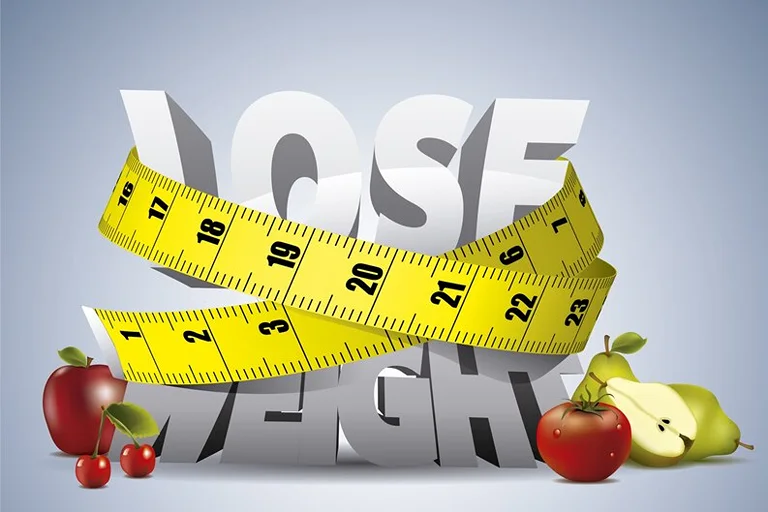Start Smart: Weight Loss vs Fat Loss Basics Simplified
If you are trying to improve your health and fitness, you may have heard of the terms weight loss Vs fat loss. But do you know what they mean and how they affect your body and health? In this article, we will explain the difference between weight loss and fat loss, why fat loss is more important than weight loss, and how you can achieve fat loss and maintain or gain muscle.

What is weight loss?
Weight loss refers to a decrease in your overall body weight from muscle, water, and fat losses. Weight loss can be caused by various factors, such as diet, exercise, illness, stress, medication, or dehydration. However, not all weight loss is healthy or beneficial for your body. Losing weight in the form of muscle or water can have negative consequences for your health and performance. In the debate Weight loss Vs Fat Loss, I and the fan of Fat Loss.
What is fat loss?
Fat loss refers to weight loss from fat, and it’s a more specific and healthful goal than weight loss. Fat loss means reducing the amount of excess fat stored in your body, especially the visceral fat that surrounds your organs, and increases the risk of chronic diseases like diabetes, heart disease, and some cancers. Losing fat can improve your body composition, which is the ratio of fat mass to lean body mass (muscle, bone, water, and other tissues). Having a healthy body composition can enhance your appearance, health, and fitness.
What is Important: Weight Loss Vs Fat Loss
While weight loss Vs fat loss are often used interchangeably, they have different effects on your body and health. Losing weight in the form of muscle or water can be detrimental, as muscle and water are crucial components of your overall health. Here are some of the benefits of maintaining your muscle and water levels while losing fat:
- Muscle helps regulate healthy blood sugar levels, maintain healthy fat levels in the blood, and control inflammation. It also reduces the risk of age-related muscle loss, which can lead to frailty and disability.
- Water helps transport nutrients and oxygen in the blood, lubricate your joints and eyes, regulate your body temperature, and flush out toxins and waste. It also supports your metabolism, digestion, and brain function.
- Muscle and water also increase your metabolic rate, which is the number of calories you burn at rest. The more muscle and water you have, the more calories you burn, even when you are not exercising. This can help you prevent weight regain and maintain a healthy weight.
On the other hand, losing fat can have positive effects on your body and health, such as:
- Fat loss can improve your body shape and appearance, making you look leaner and more toned. It can also boost your confidence and self-esteem.
- Fat loss can enhance your physical performance, as you will have less weight to carry and more energy to move. It can also improve your endurance, strength, speed, agility, and flexibility.
- Fat loss can lower your risk of various chronic diseases, such as type 2 diabetes, heart disease, stroke, high blood pressure, high cholesterol, and some cancers. It can also reduce inflammation, oxidative stress, and hormonal imbalances in your body.

How to lose fat and maintain or gain muscle
There are a few simple ways to ensure you’ll lose weight in the form of fat and either maintain or gain muscle mass. Here are some tips to follow:
- Eat a balanced and nutritious diet that provides enough calories and protein to support your muscles and metabolism. Avoid crash diets or extreme calorie deficits that can cause muscle and water loss. Include foods that are rich in fiber, vitamins, minerals, antioxidants, and healthy fats, such as fruits, vegetables, whole grains, nuts, seeds, fish, and olive oil. Limit foods that are high in sugar, salt, refined carbs, trans fats, and processed ingredients, such as sweets, sodas, chips, pastries, and fast food.
- Do a regular physical activity that combines both aerobic and resistance training. Aerobic exercise, such as running, cycling, swimming, or dancing, can help you burn calories and fat. Improve your cardiovascular health, and increase your endurance. Resistance training, such as lifting weights, doing push-ups, or using resistance bands, can help you build and preserve muscle, strengthen your bones and joints, and boost your metabolism. Aim for at least 150 minutes of moderate to vigorous aerobic exercise and 2-3 sessions of resistance training per week.

More About Losing Fat and Gaining Muscle
- Drink plenty of water throughout the day to stay hydrated and support your body functions. Water can also help you feel full and reduce your appetite, which can prevent overeating and promote weight loss. Aim for at least 8-10 glasses of water per day, and more if you exercise or sweat a lot. You can also drink herbal teas, low-fat milk, or unsweetened juices, but avoid alcoholic, caffeinated, or sugary drinks that can dehydrate you and add extra calories.
- Get enough sleep and rest to allow your body and mind to recover and rejuvenate. Sleep can also regulate your hormones, appetite, and mood, which can affect your weight and fat loss. Lack of sleep can increase your levels of cortisol, a stress hormone that can cause fat storage and muscle breakdown. It can also make you crave more food, especially carbs and sweets, and reduce your energy and motivation to exercise. Aim for 7-9 hours of quality sleep per night, and avoid distractions, such as TV, phone, or computer, before bedtime.
Summary: Weight Loss Vs Fat Loss
Weight loss and fat loss are not the same thing. Weight loss refers to a decrease in your overall body weight from muscle, water, and fat losses. Fat loss refers to weight loss from fat, and it’s a more specific and healthful goal than weight loss. Fat loss can improve your body composition, health, and fitness, while weight loss can have negative consequences for your muscles, water, and metabolism. To achieve fat loss and maintain or gain muscle, you need to eat a balanced and nutritious diet, do regular physical activity, drink plenty of water, and get enough sleep and rest.



